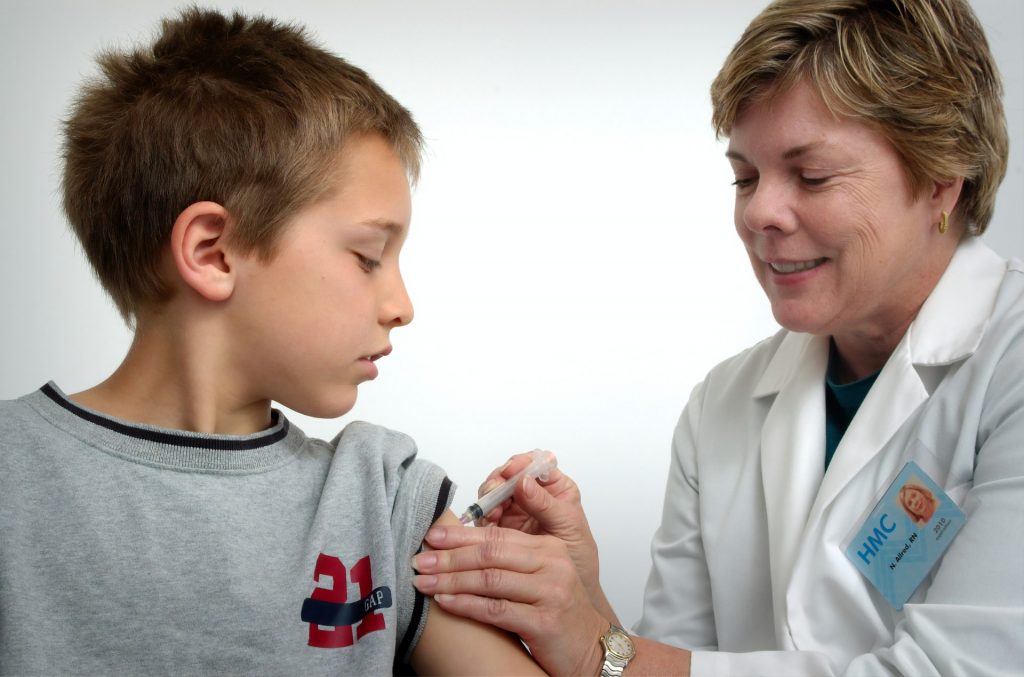Health
I’m an infectious disease doctor. Yes, I’m vaccinating our 5-year-old against COVID-19. Here is why you should too.

I am an infectious disease physician. When it is our turn to vaccinate our five-year-old son against COVID-19, I will do so with confidence and without hesitation. I am encouraging every parent with eligible children between ages five and 11 to do the same. Here is why.
The U.S. Food and Drug Administration (FDA) recently authorized the Pfizer-BioNTech vaccine for children between five and 11 years of age. Subsequently, members of the Centers for Disease Control and Prevention’s Advisory Committee on Immunization Practices voted unanimously to recommend vaccination for all children ages five to 11, a recommendation quickly endorsed by CDC director Dr. Rochelle Walensky.
The rush to vaccinate children in this age group in the United States has now begun.
Health Canada is reviewing a similar submission from Pfizer to allow its vaccine to be used in children aged five to 11. Approval is expected in the coming weeks. The National Advisory Committee on Immunization (NACI) will then provide guidance for its use in Canada, after which we expect to have the vaccine authorized for all children in Canada in this age group.
Reviewing the evidence
Many parents in Canada have indicated hesitancy to vaccinate their children, and understandably all parents have questions about weighing the risks and benefits. Let’s review the evidence.
Pfizer’s clinical trial conducted in the United States in kids aged five to 11 began early in 2021, and a significant surge of COVID-19 occurred soon after as the highly contagious Delta variant swept across the country. The data reported from the clinical trial thus far is encouraging.
The antibody responses in children aged five to 11 with two 10-microgram doses, given three weeks apart, were comparable to those in persons aged 16 to 25 who were given two 30-microgram doses three weeks apart. Being fully vaccinated reduced the chances of being infected with COVID-19 by over 90 per cent, an impressive number especially amidst the Delta surge.
No concerning safety events were identified in over 3,000 children who received the vaccine, although followup intervals were short.
Why vaccinate kids against COVID-19?
A question commonly asked by parents is this: “Kids don’t generally get very sick or die from COVID-19 compared to adults, right? So why vaccinate them if their risk is so low?”
Yes, the risk of children getting very sick or dying with COVID-19 is low, but the relative risk of severe outcomes and death that kids face when they acquire COVID-19 is extremely high. COVID-19 was the sixth highest cause of death from disease in children ages five to 11 in the U.S. in 2020, comparable to rates of death seen in children with heart or lung disease. If there were a way to prevent death in children with heart or lung disease as simple as a safe two-dose vaccine, there would be very little hesitation from parents to take advantage of it.
Besides hospitalization and death, COVID-19 infection poses other significant risks for children, including the risk of multisystem inflammatory syndrome in children (MIS-C) and longer-term post-COVID-19 complications (“long COVID”) similar to adults. MIS-C can occur two to six weeks after COVID-19 infection, nearly two-thirds of affected children will require critical care support, and between one and two per cent of affected children will die.
About seven per cent of children in the United Kingdom who recovered from COVID-19 infection reported ongoing symptoms 12 weeks after being diagnosed, which affected various aspects of their quality of life: missing school, being less able to perform physical activity and mental health concerns.
MIS-C and long COVID in children are best avoided through prevention of COVID-19 infection by being fully vaccinated.
Concerns about side-effects
The primary side-effect of concern in young children receiving the COVID-19 vaccine is myocarditis, or inflammation of the heart muscle. In one recent Israeli study, the risk of myocarditis was highest in male patients between ages 16 and 29 after a second dose of an mRNA vaccine, at roughly 11 out of every 100,000 males. A second Israeli study identified males between ages 16 and 19 as being at greatest risk. The risk of myocarditis in females across all age groups was negligible in both studies. Deaths due to vaccine-induced myocarditis are extremely rare, and nearly all cases recover fully.
In Pfizer’s clinical trial of children between ages five and 11, no cases of myocarditis have been detected, but ongoing surveillance will be necessary as cases of myocarditis in children of this age group are expected to be extremely rare, given that myocarditis is typically a post-pubertal phenomenon. Also, since the vaccine dose being given to children aged five to 11 is one-third the dose given to persons over 12, an even greater reduction in vaccine-induced myocarditis is likely in this younger age group.
The risk of damage to the heart from infection with SARS-CoV-2 is statistically much higher than the risk of vaccine-induced myocarditis. COVID-19 infection can lead to a variety of complications of the heart, some serious. Such complications include damage to heart muscle from myocarditis itself, as well as inflammation of blood vessels supplying the heart muscle caused by the virus.
Many parents worry about the possible effects of COVID-19 vaccine on fertility and future pregnancies. No evidence exists right now to demonstrate any concerns with COVID-19 vaccine and fertility, pregnancy or breast-feeding. Tens of thousands of women have received vaccine while being pregnant, and no safety signals have been identified.
Parents are concerned about the lack of long-term safety data available for the mRNA vaccines. No reasonable scientific basis exists to indicate that long-term side effects of mRNA vaccination will occur. mRNA is degraded in the body very quickly, which is why we would typically expect to see vaccine side effects like myocarditis within the first two months of vaccine administration, or not at all. Billions of doses of COVID-19 vaccine have been administered worldwide with no long-term side effects identified, providing further evidence for the long-term safety of mRNA vaccines.
Benefits of vaccination far exceed potential risks
Unfortunately, SARS-CoV-2 is not going to ever go away. Our best-case scenario is endemicity, and even that reality is unpredictable given the potential emergence of new viral variants. We cannot expect our children to live in “bubbles” forever. We must prepare them as best as we can to safely navigate this new reality.
Based on the scientific evidence at hand, the benefits of vaccination for my five-year-old son far exceeds any potential risk. That is why he will be vaccinated as soon as he is eligible, and also why practically every expert group on child health across the world has come out in favour of universal vaccination of children, including the American Academy of Pediatrics. We have not even brought up the significant societal benefit of moving closer toward herd immunity through universal vaccination of eligible children.
Navigating the COVID-19 pandemic has been difficult and disruptive for children and their families. We now give routine childhood vaccines to our kids without hesitation, and they have dramatically improved the quality of life and life expectancy of children worldwide. Getting every child between ages five and 11 fully vaccinated against COVID-19 helps bring us all one step closer towards normalcy and protects our children from severe outcomes of COVID-19 infection.
That is why I am going to vaccinate our five-year-old son with confidence, and why I will strongly encourage all parents to do the same.
Do you have a question about COVID-19 vaccines? Email us at ca-vaccination@theconversation.com and vaccine experts will answer questions in upcoming articles.![]()
Alexander Wong, Associate Professor, Infectious Diseases, University of Saskatchewan
This article is republished from The Conversation under a Creative Commons license. Read the original article.






















